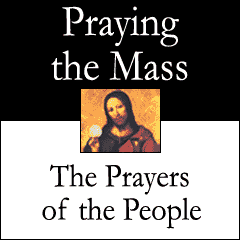It’s good to see The Age being “balanced” for once. I jest of course. They have published a reply by Juliette Hughes to Catherine Deveney’s column bagging the church (see my blog here).
Hughes is quite a decent writer (see her article here on euthanasia), but this is way from her best piece. As a defence of the Christian faith it fails dismally, giving little reason for belonging to the Church other than that they are nice people and they do good work. She agrees with Deveney that the church hierarchy are guilty of “misogynistic and regressive policies”–although at least she does not subscribe to the “recipe for grumpiness” (as John Allen called it) ie. mistaking the hierarchy for the Church. She says that the Bible isn’t a problem for her, because
taking the Bible literally is pointless, for it contains many different stories by many different authors that are easily taken out of context.
“For the instance,” she says,
most Catholics don’t feel they need to believe that the Bible’s account of creation is historically and scientifically accurate.
She is right that the scriptures are not “simply reportage”, but like “most Catholics”, she misunderstand what is meant by a “literal” reading. The Catechism says:
116 The literal sense is the meaning conveyed by the words of Scripture and discovered by exegesis, following the rules of sound interpretation: “All other senses of Sacred Scripture are based on the literal”
It is precisely because the Bible “contains many different stories by many different authors that are easily taken out of context” that it is so important to maintain the literal reading which is achieved by scholarly “exegesis” and “sound interpretation”. But Hughes blithely declares that she
can’t really take seriously someone who believes that the Bible is the inerrant word of God.
Well, either she does not know what the Church means when they say the Word of God is “inerrant”, or she “can’t really take seriously” the Second Vatican Council which declared:
“Sacred Scripture is the speech of God as it is put down in writing under the breath of the Holy Spirit” DV 9
“We must acknowledge that the books of Scripture firmly, faithfully, and without error teach that truth which God, for the sake of our salvation [nb. not scientific or historical curiosity], wished to see confided to the Sacred Scriptures” DV 11
But of course, Hughes does not believe that “salvation” is something universally required. She makes the rather curious little statement:
I certainly don’t believe that someone who isn’t a Christian needs “saving”.
I know this is politically correct — for goodness sakes I work in interreligious affairs where the only sin greater than suggesting that your dialogue partner needs to be saved is to suggest that he can only be saved “in the name of Jesus” — nevertheless it is a curious statement to make in a defence of the Christian faith. I take it that she does believe that Christians need “saving” — or at least that she herself needs “saving”. Perhaps the difficulty is with the word “save”, which really seems to have lost any real meaning. The alternative translation of the biblical word “to save” is “to heal” or “to be made whole”. And I think everyone would agree that we all need healing to some degree or other, that we are all seeking wholeness of some sort or other. The suggestion — in fact the call witness — of Christianity is that real healing and wholeness can actually be found in Jesus Christ.
In this is my real beef with Hughes’ article. From beginning to end, it doesn’t mention Jesus Christ once. It certainly doesn’t mention his resurrection. And is there any other reason for being a Christian than faith in Jesus Christ and believe that he rose from the dead? As saint Paul said, “If Christ be not raised we are the most miserable of all people.” Deveney would be absolutely right to say that all Christians — including Hughes — are completely mad, if in fact Jesus never rose from the dead.
So if you want to find a real defence of Christianity, don’t bother reading Juliette Hughes’ defence. I suggest you read The Spanish Bishops Conference’s latest statement as translated on Sandro Magister’s website. Here is what they have to say about the resurrection:
34. The resurrection of Christ is an historically substantiated event, which the Apostles witnessed and certainly did not invent. This was not a matter of a simple return to earthly life; on the contrary, it was the greatest “mutation” that has ever taken place in history, the decisive “leap” toward a profoundly new dimension of life, the entry into a totally different order, which concerns Jesus of Nazareth first of all, but together with him ourselves, all of the human family, history, and the entire universe. For this reason the resurrection of Christ is the center of Christian preaching and witness, since the beginning and until the end of time. Jesus Christ rises from among the dead because his entire being is united with God, who is love that is truly stronger than death. His resurrection was like an explosion of light, an explosion of love that broke the chains of sin and death. His resurrection inaugurated a new dimension of life and reality, giving rise to a new creation that continually penetrates our world, transforming it and drawing it to itself.
Now there is the real reason for being Christian.



.jpg)







